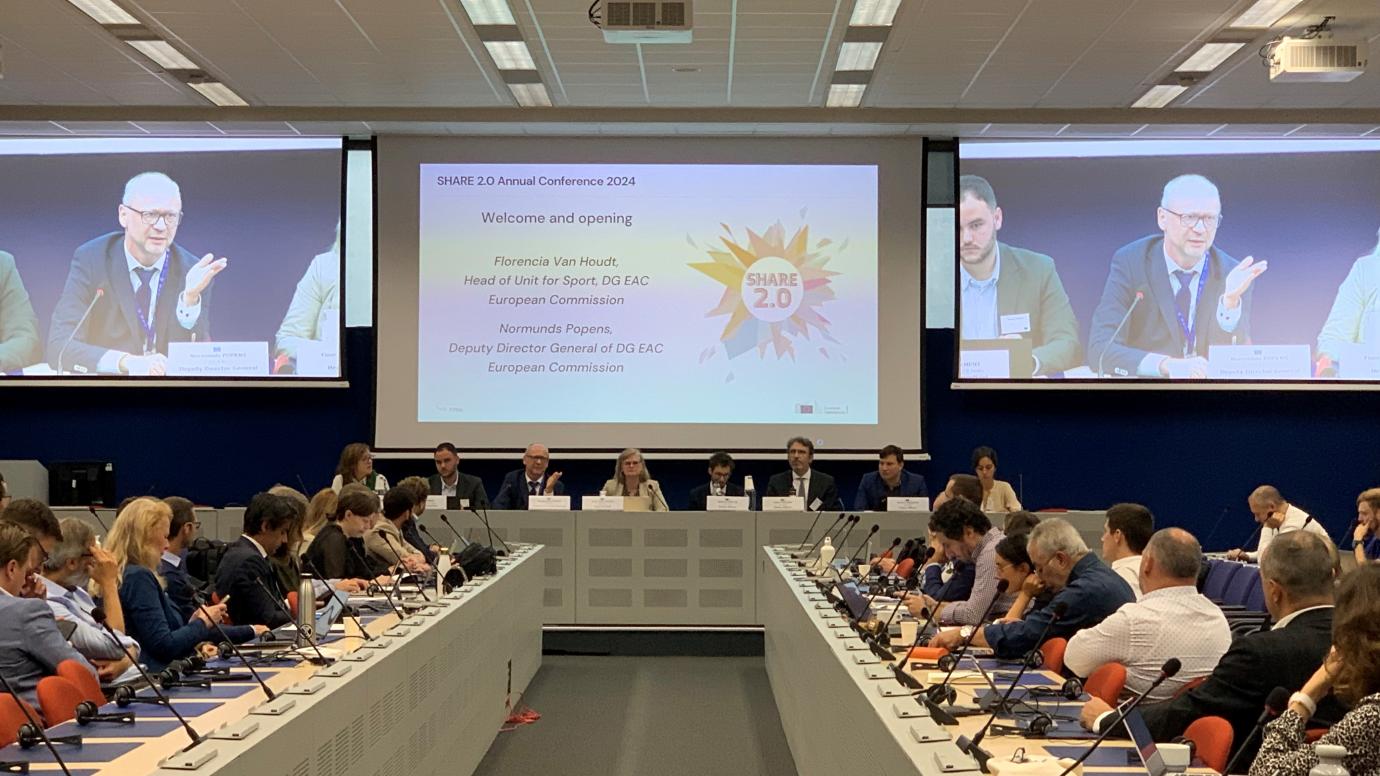Taking a step into the future of sport: insights from the 2024 SHARE 2.0 annual conference
The SHARE 2.0 initiative held its first annual conference on 11 September 2024 in Brussels. 100 participants discussed challenges, ideas and solutions that will feed into policy papers on innovation, health and environmental sustainability.

The SHARE 2.0 Initiative is a platform for sport stakeholders, organised in four communities of practice, each of which fostering discussions in targeted thematic areas. These are EU funding, green and sustainable sport, innovation and health.
Normunds Popens, Deputy Director-General of Directorate-General for Education and Culture (DG EAC), opened the conference by inviting participants to reflect on the importance of sport and active lifestyles for society and demonstrate its relevance and impact across different policy areas.
Through interactive discussions, participants came up with numerous challenges, ideas and solutions for policy papers on innovation, health, and environmental sustainability that will be drafted and presented to the Commission in the next months.
Georg Häusler, Director for Culture, Creativity and Sport at DG EAC concluded the conference by summarising the importance of community, cooperation and exchange.
Community of Practice (CoP) on green and sustainable sport
This community explored how European sport organisations can act on sustainability, in line with the European Green Deal.
Building on the Green Sport Expert Group's recommendations, the CoP reflected on the necessary tools to mobilise sport organisations to commit to concrete action, for instance through pledges.
Key issues for further reflection in the green sport policy paper include
- minimum requirements for taking action
- monitoring progress
- getting access to technical support
- ensuring long-term sustainability of actions for sustainability
Community of Practice (CoP) on innovation
This community explored options to improve competitiveness in the sport sector and set forward key challenges for digitalisation and scale-ups in the European sport sector.
When it comes to digitalisation, smaller organisations struggle with basic knowledge, skills and tools, while larger ones show risk aversion due to overload of solutions and sector fragmentation. Therefore, investments in software, hardware and digital skills remains limited, while data is underutilised due to lack of knowledge. Useful initiatives could include sport cluster networks and funding for innovation sport.
Maintaining a favourable environment for scale-ups, increased public and private funding and the acceleration of public-private partnerships is essential. Equally important is fostering new forms of collaboration, especially between the sports and well-being sectors, and key areas like research and development, production, and logistics across Europe. Strengthening these synergies can drive innovation, support growth, and build a more resilient ecosystem for scale-ups to thrive.
Community of Practice (CoP) on health
This community discussed how to promote sport and physical activity across sectors. The importance of cross-sectoral cooperation was highlighted including with sectors like urban planning (creating safe and accessible public spaces) and mobility (providing safer cycling infrastructure).
More flexible timetables and promotion of fun compared to traditional and competitive sport were highlighted as crucial to increasing participation among young people.
Regarding mental health, raising awareness and communication, providing access to psychologists or hotlines to encourage physical activity can improve motivation. Guidance for sport coaches to look after the (mental) health of their pupils in schools and clubs was spotlighted as crucial to boosting young people’s wellbeing.
Last updated:


